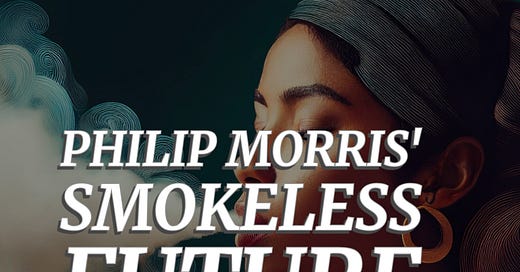Philip Morris International $PMI and the Smokeless Future
PMI launched a rebranding campaign in 2014 to open the company's product range and make it future proof to anti-smoking macro trends.
Philip Morris International PM 0.00%↑ has been a giant in the tobacco industry for decades. With 180 years of history under its belt, it has grown from a small store in London to the official tobacco supplier to the King of England and now the world's largest multinational tobacco company. PM is always found as a prominent figure in the portfolio of the largest…
Keep reading with a 7-day free trial
Subscribe to 24Hour Journal to keep reading this post and get 7 days of free access to the full post archives.




